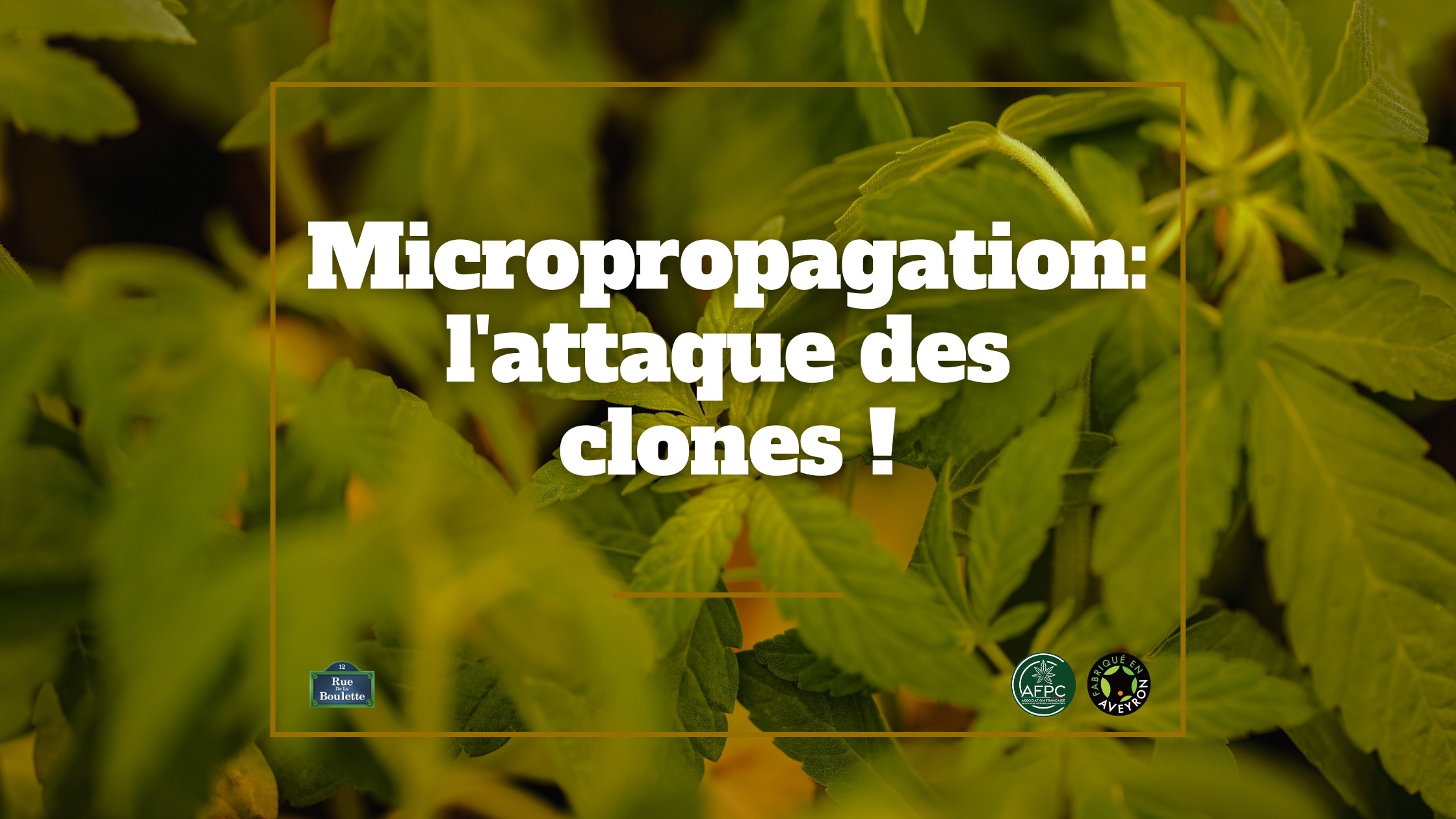Micropropagation: Attack of the Clones!
An In-Depth Exploration of the Future of Regular CBD Resin Production
To make good resin you need good hemp, and hemp is Cannabis Sativa L. but it is the mild version, the light version. In other words, if we are really interested in hashish we cannot ignore this essential question: where does the plant come from?
In equal climate, there are many varieties of mild Cannabis and not all of them reach the same maturity at the same time, nor the same productivity in the same place. The cause: the genetic heritage.
Cannabis is able to adapt very quickly to the climate in which it is found, but it takes nature several generations and as much time to balance things out. The answer to this problem has a technical name: micropropagation, in other words, cloning.
A brief overview of the many advantages of cloning hemp, when it comes to making legal hash.
Hemp is multiple
It is because hemp adapts quickly to its ecosystem that there are so many varieties. But also: under which sun, near which sea, at what latitude, at what altitude? In short, there are on this earth, as many different hemps as there are different people to observe it.
As a result, it is a real headache for the hashish master who wishes to stabilize his precious hemp concentrates. One of the most effective methods to better control the finished product is to start from the same plant, always the same plant, again the same plant, in other words to cultivate clones.
Micropropagation, the art of cloning
When they are pruned and placed in particular humidity conditions, the plants are programmed to make roots from their stems.
Several conditions are essential to achieve this little miracle:
Start with healthy, growing plants
Cut the cutting in the right place at the right time
Use a product that will promote root growth
Keep the cutting in controlled humidity conditions
All tools used for cutting, peeling, maintaining and humidifying cuttings must be kept spotlessly clean and regularly disinfected.
Cloning quickly becomes a game and we find ourselves wanting to reproduce and replant just about anything and everything. In the case of Cannabis / hemp there are many advantages to this.
Why cloning hemp is a good idea
In a few positive points:
Genetic Homogeneity:
Ensuring that each plant is a genetic replica of the other means a uniform profile of cannabinoids and terpenes. For "Rue de la Boulette", this translates into a CBD resin offering consistent effects, taste and quality in each batch.
Disease Eradication:
Traditional cultivation can sometimes carry pathogens. Micropropagation, with its sterile environment, eliminates this risk, ensuring robust, disease-free plants.
Exponential Propagation:
A mother plant can produce thousands of genetically identical offspring in a matter of weeks, making it a game changer for large-scale production.
Preservation of Elite Strains:
Rare or elite cannabis strains can be preserved and mass-produced, ensuring that their unique traits are not lost over time.
From your clones you can keep a record of what you grow.
Which is pretty good considering that:
you can’t just clone plants that are still growing
the quality of a flower is measured after harvest and often after drying
So the methodical and organized gardener will know how to choose the individuals best suited to their needs and abilities, this is also true on a larger scale for an entire industry today.
Why Clones Are Better for Resin
Accuracy of Resin Terpene Profiles:
Genetically identical plants means that the extracted resin will have a predictable and consistent profile under the same process. This is invaluable precision for Rue de la Boulette, so that our hashes maintain their reputation for the highest quality standards.
Tailor-made Cultivars for Consistency:
Thanks to micropropagation, cultivars that produce superior resin or have unique cannabinoid compositions can be widely reproduced. This ensures that the raw material for hash production is always of the highest quality.
Efficiency and Economy:
A reduced risk of disease means less waste and an optimized yield. Faster propagation reduces time to market. Both factors contribute to economic efficiency, ensuring better profit margins and competitive pricing.
You get the idea, the future of producing hemp and cannabis products involves cloning and mastering micropropagation. In any case, this is an important strategy for producing resins. Rue de la Boulette, all great things have a small beginning…

